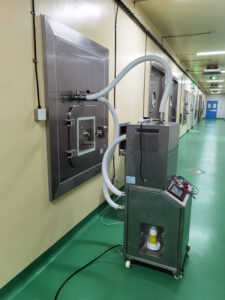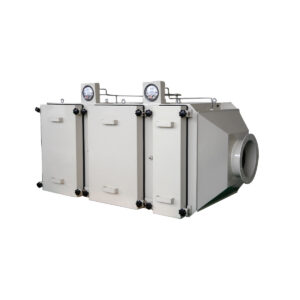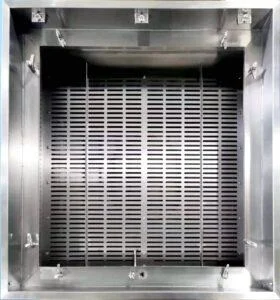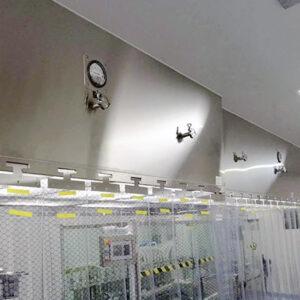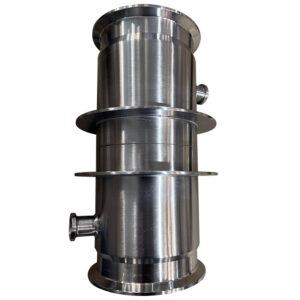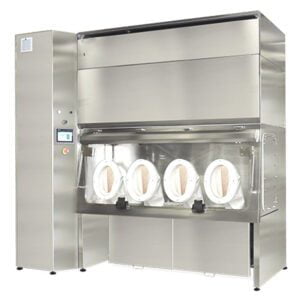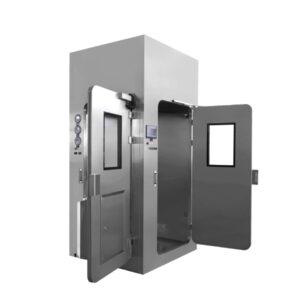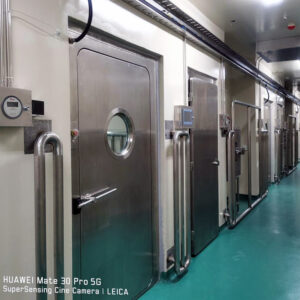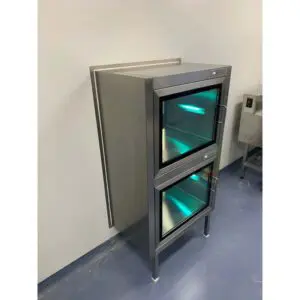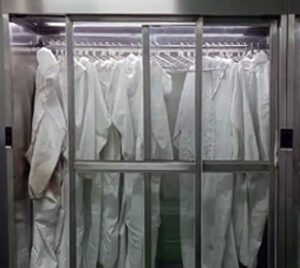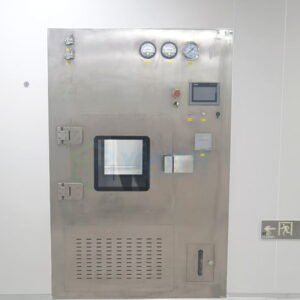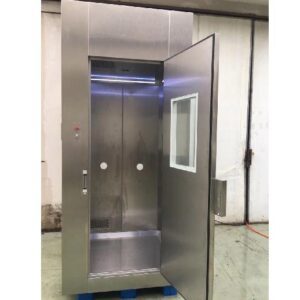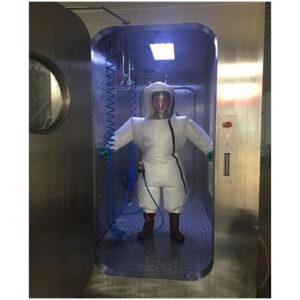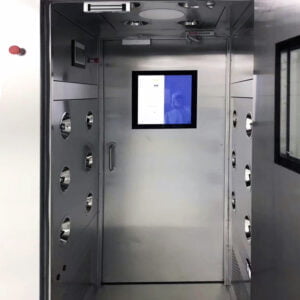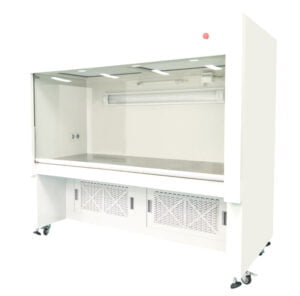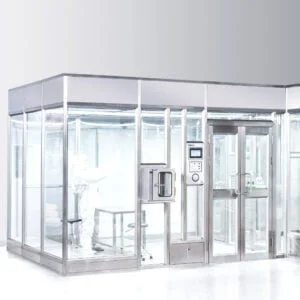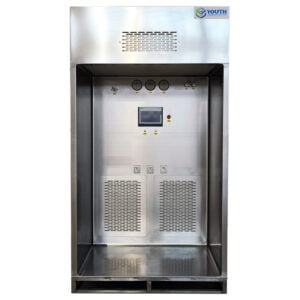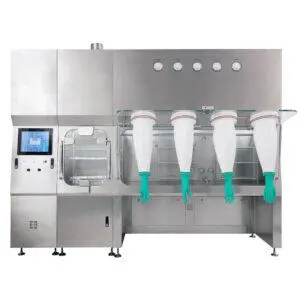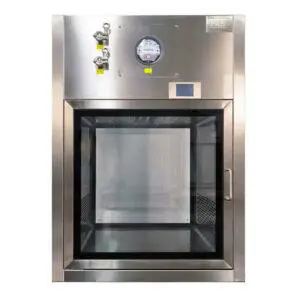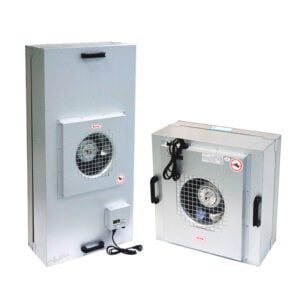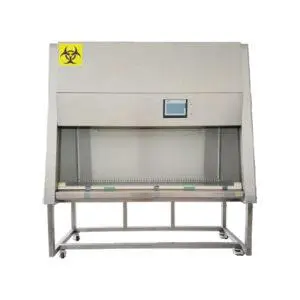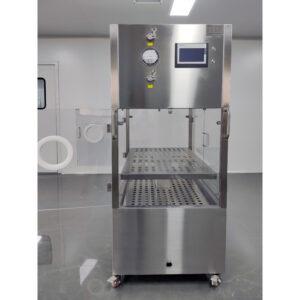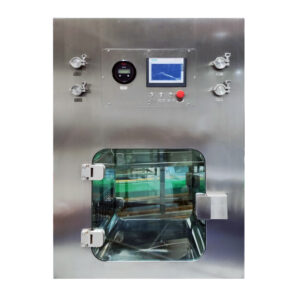The rapid advancement of technology in the pharmaceutical and healthcare industries has led to an increased need for mobile equipment that can meet stringent regulatory requirements. One such critical regulation is FDA 21 CFR Part 11, which governs electronic records and electronic signatures. In this context, the compatibility of Mobile Laminar Air Flow (LAF) Carts with FDA 21 CFR Part 11 has become a topic of significant interest for manufacturers, researchers, and healthcare professionals alike.
As we delve into the world of FDA 21 CFR Part 11 compatibility, we'll explore how Mobile LAF Carts are adapting to meet these regulatory standards. We'll examine the key aspects of the regulation, the challenges faced in achieving compatibility, and the innovative solutions being implemented. This article will provide a comprehensive overview of the intersection between mobile clean room technology and regulatory compliance, offering valuable insights for those navigating this complex landscape.
The journey towards FDA 21 CFR Part 11 compatibility for Mobile LAF Carts is not just about meeting regulatory requirements; it's about enhancing the reliability, security, and efficiency of critical processes in pharmaceutical manufacturing and research. As we transition into the main content, we'll uncover the intricacies of this compatibility and its far-reaching implications for the industry.
FDA 21 CFR Part 11 compatibility is essential for Mobile LAF Carts to ensure the integrity, trustworthiness, and reliability of electronic records and signatures in regulated environments.
What are the key requirements of FDA 21 CFR Part 11 for Mobile LAF Carts?
FDA 21 CFR Part 11 sets forth stringent requirements for electronic records and electronic signatures in regulated industries. For Mobile LAF Carts, these requirements translate into specific features and capabilities that must be integrated into their design and operation.
The regulation primarily focuses on ensuring the authenticity, integrity, and confidentiality of electronic records. This includes measures to prevent unauthorized access, maintain audit trails, and ensure the accuracy and reliability of data generated and stored by these systems.
For Mobile LAF Carts, compliance with FDA 21 CFR Part 11 involves implementing robust software systems, secure data storage mechanisms, and user authentication protocols. These carts must be capable of generating accurate, time-stamped records of all operations and maintaining a complete audit trail of any changes made to the data.
Mobile LAF Carts must incorporate features such as user authentication, audit trails, and secure data storage to meet the requirements of FDA 21 CFR Part 11.
| Requirement | Description |
|---|---|
| User Authentication | Secure login systems with unique user IDs and passwords |
| Audit Trails | Detailed, time-stamped logs of all system activities |
| Data Integrity | Measures to prevent unauthorized alterations to stored data |
| Electronic Signatures | Legally binding electronic signatures for critical operations |
The integration of these features into Mobile LAF Carts represents a significant advancement in clean room technology. By ensuring FDA 21 CFR Part 11 compatibility, manufacturers like YOUTH are not only meeting regulatory requirements but also enhancing the overall reliability and efficiency of their products.
How does FDA 21 CFR Part 11 compatibility impact the design of Mobile LAF Carts?
The quest for FDA 21 CFR Part 11 compatibility has profoundly influenced the design and engineering of Mobile LAF Carts. Manufacturers have had to rethink traditional designs to incorporate the necessary electronic systems and data management capabilities.
One of the most significant changes has been the integration of sophisticated software systems into what were once primarily mechanical devices. These software systems are responsible for managing user access, recording operational data, and maintaining audit trails.
The physical design of Mobile LAF Carts has also evolved to accommodate these new electronic components. This includes the addition of secure, sealed compartments for computer hardware, touchscreen interfaces for user interaction, and robust power management systems to ensure uninterrupted operation.
The design of Mobile LAF Carts has been revolutionized to incorporate advanced electronic systems, ensuring FDA 21 CFR Part 11 compatibility while maintaining their primary function of providing a clean air environment.
| Design Feature | Purpose |
|---|---|
| Touchscreen Interface | User-friendly control and data entry |
| Sealed Electronics Compartment | Protection of sensitive electronic components |
| Integrated Battery Backup | Ensures data integrity during power interruptions |
| Wireless Connectivity | Facilitates real-time data transfer and remote monitoring |
The impact of FDA 21 CFR Part 11 compatibility on Mobile LAF Cart design extends beyond mere regulatory compliance. It has driven innovation in the field, leading to more sophisticated, user-friendly, and efficient clean room equipment. These advancements benefit not only the end-users but also contribute to improved quality control and productivity in regulated industries.
What challenges do manufacturers face in achieving FDA 21 CFR Part 11 compatibility for Mobile LAF Carts?
Achieving FDA 21 CFR Part 11 compatibility for Mobile LAF Carts presents several challenges for manufacturers. These challenges stem from the need to integrate complex electronic systems into devices that must maintain strict environmental control.
One of the primary challenges is balancing the requirements for electronic data management with the need for a sterile, particulate-free environment. The introduction of electronic components increases the risk of particle generation, which is counterproductive to the primary function of LAF Carts.
Another significant challenge is ensuring the reliability and durability of electronic systems in a mobile environment. Mobile LAF Carts are often moved between different areas of a facility, exposing them to potential physical stress and varying environmental conditions.
Manufacturers must overcome the challenge of integrating sophisticated electronic systems into Mobile LAF Carts while maintaining a sterile environment and ensuring durability in mobile applications.
| Challenge | Solution Approach |
|---|---|
| Particle Generation | Use of sealed, fanless computer systems |
| System Reliability | Ruggedized components and shock-absorbing mounts |
| Data Security | Encrypted storage and secure wireless protocols |
| User Training | Comprehensive training programs and intuitive interfaces |
Despite these challenges, innovative manufacturers are finding ways to overcome them. By leveraging advanced materials, sophisticated engineering techniques, and cutting-edge software solutions, companies are successfully developing Mobile LAF Carts that meet both the stringent requirements of FDA 21 CFR Part 11 and the practical needs of end-users.
How do Mobile LAF Carts ensure data integrity and security in compliance with FDA 21 CFR Part 11?
Ensuring data integrity and security is a crucial aspect of FDA 21 CFR Part 11 compliance for Mobile LAF Carts. These devices must not only generate accurate data but also protect it from unauthorized access or alteration.
To achieve this, Mobile LAF Carts incorporate multiple layers of security measures. At the hardware level, this includes physical locks on access panels and tamper-evident seals. At the software level, robust user authentication systems, encryption protocols, and audit trail mechanisms are implemented.
Data integrity is maintained through the use of checksums, digital signatures, and redundant storage systems. These measures ensure that any unauthorized changes to data can be detected and traced back to their source.
Mobile LAF Carts employ a combination of physical and digital security measures to ensure data integrity and compliance with FDA 21 CFR Part 11, including encryption, digital signatures, and tamper-evident hardware.
| Security Feature | Function |
|---|---|
| Multi-factor Authentication | Prevents unauthorized access to the system |
| 256-bit Encryption | Protects data during storage and transmission |
| Automated Backups | Ensures data recovery in case of system failure |
| Real-time Monitoring | Detects and alerts to any unauthorized access attempts |
The implementation of these security measures not only ensures compliance with FDA 21 CFR Part 11 but also provides users with confidence in the reliability and integrity of the data generated by Mobile LAF Carts. This is particularly crucial in pharmaceutical manufacturing and research environments where data accuracy can have significant implications for product quality and patient safety.
What role does software validation play in FDA 21 CFR Part 11 compatibility for Mobile LAF Carts?
Software validation is a critical component of FDA 21 CFR Part 11 compatibility for Mobile LAF Carts. It ensures that the software controlling these devices performs as intended and produces accurate, reliable results consistently.
The validation process involves rigorous testing of all software functions, including user authentication, data recording, audit trail generation, and electronic signature capabilities. This testing must be documented thoroughly, with all results and any remedial actions taken clearly recorded.
Manufacturers must also establish procedures for ongoing software validation, including processes for handling software updates and patches. This ensures that the Mobile LAF Cart remains compliant with FDA 21 CFR Part 11 throughout its lifecycle.
Comprehensive software validation is essential for maintaining FDA 21 CFR Part 11 compatibility in Mobile LAF Carts, involving initial testing, documentation, and ongoing validation procedures.
| Validation Step | Description |
|---|---|
| Requirements Specification | Detailed documentation of software requirements |
| Functional Testing | Verification of all software functions |
| Performance Testing | Evaluation of software performance under various conditions |
| User Acceptance Testing | Validation of software usability by end-users |
| Change Control | Procedures for managing software updates and patches |
Software validation is not a one-time event but an ongoing process that continues throughout the lifecycle of the Mobile LAF Cart. This commitment to continuous validation ensures that these devices remain compliant with FDA 21 CFR Part 11 and continue to deliver reliable, accurate performance in critical clean room applications.
How do electronic signatures in Mobile LAF Carts comply with FDA 21 CFR Part 11?
Electronic signatures are a key component of FDA 21 CFR Part 11 compliance, and their implementation in Mobile LAF Carts requires careful consideration. These signatures must be as legally binding as traditional handwritten signatures, necessitating robust security measures and clear user attribution.
In Mobile LAF Carts, electronic signatures are typically implemented through a combination of unique user identification and password or biometric authentication. The system must ensure that each signature is uniquely attributable to an individual and cannot be reused or transferred.
Furthermore, the electronic signature system must capture the date and time of the signature, the purpose for which the signature is applied, and any other relevant contextual information. This information becomes part of the permanent record associated with the signed document or action.
Electronic signatures in Mobile LAF Carts must be uniquely attributable, non-transferable, and accompanied by all relevant contextual information to comply with FDA 21 CFR Part 11 requirements.
| Electronic Signature Component | Requirement |
|---|---|
| User Authentication | Two distinct identification components |
| Signature Binding | Inextricably linked to the signed record |
| Signature Manifestation | Clear display of the signed information |
| Record Protection | Prevention of unauthorized record changes post-signature |
The implementation of compliant electronic signatures in Mobile LAF Carts enhances the efficiency of workflows in regulated environments. It allows for faster approval processes, reduces paper usage, and provides a clear, auditable trail of all signed actions. This capability is particularly valuable in pharmaceutical manufacturing and research settings where rigorous documentation and approval processes are essential.
What are the benefits of FDA 21 CFR Part 11 compatible Mobile LAF Carts for end-users?
FDA 21 CFR Part 11 compatible Mobile LAF Carts offer numerous benefits to end-users, extending beyond mere regulatory compliance. These advanced systems provide enhanced functionality, improved data management, and increased operational efficiency.
One of the primary benefits is the assurance of data integrity and security. Users can trust that the data generated and stored by these systems is accurate, tamper-proof, and readily available for audits or inspections. This reduces the risk of regulatory non-compliance and potential product quality issues.
The integration of electronic record-keeping and signature capabilities streamlines workflows and reduces paper-based processes. This not only saves time but also minimizes the potential for human error in documentation.
FDA 21 CFR Part 11 compatible Mobile LAF Carts provide end-users with enhanced data integrity, streamlined workflows, and improved regulatory compliance, leading to increased operational efficiency and product quality.
| Benefit | Impact |
|---|---|
| Data Integrity | Reduced risk of data manipulation or loss |
| Workflow Efficiency | Faster approvals and reduced paper usage |
| Audit Readiness | Easily accessible, comprehensive audit trails |
| Remote Monitoring | Real-time access to operational data |
These benefits make FDA 21 CFR Part 11 compatible Mobile LAF Carts a valuable investment for organizations operating in regulated industries. By choosing equipment with FDA 21 CFR Part 11 compatibility , users can ensure they are well-prepared for regulatory inspections while also enjoying the operational advantages of advanced clean room technology.
Conclusion
The compatibility of Mobile LAF Carts with FDA 21 CFR Part 11 represents a significant advancement in clean room technology. This compatibility ensures that these critical pieces of equipment not only provide the necessary environmental control but also meet the stringent regulatory requirements for electronic records and signatures in regulated industries.
Throughout this article, we've explored the key aspects of FDA 21 CFR Part 11 compatibility, including the specific requirements, design implications, challenges faced by manufacturers, and the benefits for end-users. We've seen how this compatibility drives innovation in areas such as data security, software validation, and electronic signature implementation.
The journey towards FDA 21 CFR Part 11 compatibility has led to the development of more sophisticated, user-friendly, and efficient Mobile LAF Carts. These advanced systems offer improved data integrity, streamlined workflows, and enhanced regulatory compliance, making them invaluable tools in pharmaceutical manufacturing, research, and other regulated environments.
As technology continues to evolve, we can expect further advancements in this field. Manufacturers will likely continue to innovate, finding new ways to enhance the functionality and compliance of Mobile LAF Carts while maintaining their core purpose of providing a controlled, clean air environment.
For organizations operating in regulated industries, investing in FDA 21 CFR Part 11 compatible Mobile LAF Carts is not just about meeting regulatory requirements. It's about embracing technology that can improve operational efficiency, enhance product quality, and ultimately contribute to better outcomes in critical applications.
In conclusion, FDA 21 CFR Part 11 compatibility has become an essential feature for Mobile LAF Carts, transforming them from simple clean air devices into sophisticated, data-driven tools that play a crucial role in ensuring regulatory compliance and operational excellence in regulated industries.
External Resources
FDA 21 CFR Part 11 – Official FDA resource detailing the regulations for electronic records and electronic signatures.
Compliance vs. Compatibility: Understanding FDA 21 CFR Part 11 – Article explaining the differences between compliance and compatibility with FDA 21 CFR Part 11.
21 CFR Part 11 Compliance Checklist – Comprehensive checklist for ensuring compliance with FDA 21 CFR Part 11.
Electronic Records and Signatures in FDA Regulated Industries – FDA guidance on the use of electronic records and signatures in regulated industries.
Software Validation for 21 CFR Part 11 Compliance – White paper on software validation requirements for FDA 21 CFR Part 11 compliance.
Data Integrity in the FDA-Regulated Laboratory – Article discussing data integrity requirements in FDA-regulated laboratories.
Related Contents:
- 21 CFR Part 11 Compliance: Sterility Test Isolators
- Biotech Research: Mobile LAF Cart Applications
- cGMP Mobile LAF Cart Validation: Expert Tips
- GMP-Compliant Mobile LAF Carts: Certification Guide
- Cleanroom Mobile LAF Carts: Material Transport Tips
- ISO 14644-1 Compliant Mobile LAF Carts: 2025 Guide
- Hospital Pharmacy Mobile LAF Carts: Best Practices
- Food Industry Mobile LAF Carts: Sterile Packaging
- Customizable Mobile LAF Carts: Design Your Ideal

